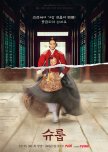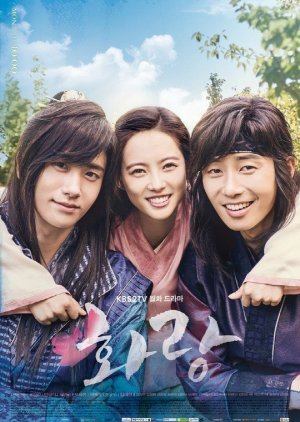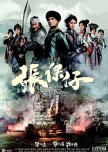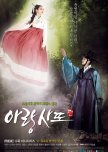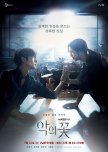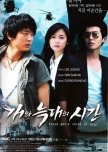
A popular teenager inexplicably finds herself in the body of an unpopular classmate - and her body's new owner has no intention of switching back.
The series centers on Ayumi Kohinata, a first-year high school student who has a cute and shy personality. She's excited that she just started dating her first boyfriend, but on the day of their first date, she gets a mysterious call from her classmate Zenko Umine. Zenko says she's going to die, and Ayumi witnesses Zenko jumping from a building. The next thing she knows, Ayumi wakes up in a hospital, but in Zenko's body.
The series centers on Ayumi Kohinata, a first-year high school student who has a cute and shy personality. She's excited that she just started dating her first boyfriend, but on the day of their first date, she gets a mysterious call from her classmate Zenko Umine. Zenko says she's going to die, and Ayumi witnesses Zenko jumping from a building. The next thing she knows, Ayumi wakes up in a hospital, but in Zenko's body.
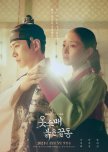
In 18th-century Korea, Prince Yi San is a perfectionist haunted by his father's murder. He's set to inherit the throne once his cruel grandfather, the current king, passes away. Despite the emotional scars left by his father's death, Yi San aspires to be a benevolent ruler who reforms the kingdom's laws. At court, he encounters Sung Deok Im, a spirited and intelligent young woman. While Yi San falls in love and proposes she become his concubine, Sung Deok Im grapples with the restrictions and responsibilities that come with royal life. However, as their love deepens, she begins to see the potential to bring positive change to the troubled realm through their union.

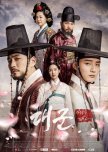
This is set in the kingdom of Silla, is which the forum hwarang which mean "flowering Knights" or "handsome and cute nobles" that would wield great influence in the future of the kingdom. In the drama both of the male leads fall in love with the same female lead, and conflict start between those male leads. Also there is another twist between the two male leads that both of them did not expect it.
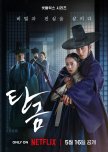
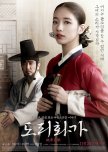
In 1867, Sin Jae Hyo leads the Dongrijungsa, which teaches pansori (traditional Korean musical storytelling). A young girl, Chae Seon, who wants to perform pansori, appears in front of him. Chae Seon has dreamed of performing pansori since she first heard Sin Jae Hyo perform when she was little, but Sin Jae Hyo turns her down because women are not allowed to perform pansori. Chae Seon then disguises herself as a man and enters the Dongrijungsa to learn pansori, but Sin Jae Hyo doesn’t accept her as his student. One day, he hears Daewongun, the most powerful man in Joseon and the father of the King, is going to hold a national competition of pansori performers known as “Naksungyeon”. Sin Jae Hyo decides to teach Chae Seon, who has a true voice to perform “Chunhyangga". If anyone finds out that Chae Seon is a woman, Sin Jae Hyo and Chae Seon will both face death.
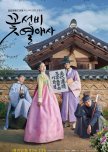


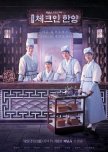
Hwarang and Check-in Hanyang share themes of hidden identities, friendship-building, and historical settings. While Hwarang focuses on an elite group of warriors in Silla, Check-in Hanyang is set in a guesthouse during the Joseon dynasty. Check-in Hanyang includes a gender bender element, whereas Hwarang does not.
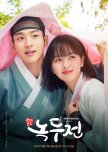
*spoiler*
- both Male leads like the girl and are eligible to become king.
- Male lead come to capital city in search for something from village
- male leads have adoptive brother and expert in martial arts
- there is squad of fighters for justice
- SML kidnaps FL
-SML hangouts near courtesans
- other characters have nice sub story and romance
- SML ends up as king and ML gets the girl
- both Male leads like the girl and are eligible to become king.
- Male lead come to capital city in search for something from village
- male leads have adoptive brother and expert in martial arts
- there is squad of fighters for justice
- SML kidnaps FL
-SML hangouts near courtesans
- other characters have nice sub story and romance
- SML ends up as king and ML gets the girl
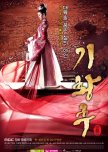
"Empress Ki" and "Hwarang" are both South Korean historical dramas that share several thematic and stylistic elements despite being set in different historical periods and contexts. Here are some of the key similarities:
1. Historical Setting: Both dramas are set in historical periods and involve historical figures and events, though they take creative liberties with historical accuracy. "Empress Ki" is set in the Goryeo and Yuan dynasties, while "Hwarang" is set in the Silla Kingdom.
2. Strong Female Leads: Each series features strong female characters who play pivotal roles in the story. "Empress Ki" follows the life of Ki Seung-nyang, who rises from a lowly status to become an empress. In "Hwarang," the female leads, including Ah Ro, display resilience and influence within the male-dominated setting.
3. Political Intrigue: Both dramas delve deeply into political machinations, court intrigues, and the struggle for power. Characters are often involved in complex plots and schemes to gain or maintain power.
4. Romantic Subplots: Romance is a significant element in both series. In "Empress Ki," the protagonist is involved in complex romantic relationships with both the Emperor of Yuan and the King of Goryeo. "Hwarang" features romantic entanglements among the members of the Hwarang and the female lead, Ah Ro.
5. Formation of Brotherhoods: "Hwarang" focuses on the creation and development of the elite Hwarang warriors, highlighting their camaraderie and brotherhood. Similarly, "Empress Ki" showcases alliances and friendships formed amidst political turbulence.
6. Action and Martial Arts: Both dramas feature a good deal of action, including sword fights, battles, and displays of martial arts skills, contributing to the excitement and intensity of the storylines.
7. Struggles with Identity and Loyalty: Characters in both series grapple with issues of identity, loyalty, and duty. In "Empress Ki," Seung-nyang must navigate her loyalty to her homeland and her new position in the Yuan dynasty. In "Hwarang," the young warriors face challenges related to their noble status, personal loyalties, and duties to their kingdom.
These elements contribute to the rich storytelling and dynamic character development in both "Empress Ki" and "Hwarang," making them compelling dramas for fans of historical and period pieces.
1. Historical Setting: Both dramas are set in historical periods and involve historical figures and events, though they take creative liberties with historical accuracy. "Empress Ki" is set in the Goryeo and Yuan dynasties, while "Hwarang" is set in the Silla Kingdom.
2. Strong Female Leads: Each series features strong female characters who play pivotal roles in the story. "Empress Ki" follows the life of Ki Seung-nyang, who rises from a lowly status to become an empress. In "Hwarang," the female leads, including Ah Ro, display resilience and influence within the male-dominated setting.
3. Political Intrigue: Both dramas delve deeply into political machinations, court intrigues, and the struggle for power. Characters are often involved in complex plots and schemes to gain or maintain power.
4. Romantic Subplots: Romance is a significant element in both series. In "Empress Ki," the protagonist is involved in complex romantic relationships with both the Emperor of Yuan and the King of Goryeo. "Hwarang" features romantic entanglements among the members of the Hwarang and the female lead, Ah Ro.
5. Formation of Brotherhoods: "Hwarang" focuses on the creation and development of the elite Hwarang warriors, highlighting their camaraderie and brotherhood. Similarly, "Empress Ki" showcases alliances and friendships formed amidst political turbulence.
6. Action and Martial Arts: Both dramas feature a good deal of action, including sword fights, battles, and displays of martial arts skills, contributing to the excitement and intensity of the storylines.
7. Struggles with Identity and Loyalty: Characters in both series grapple with issues of identity, loyalty, and duty. In "Empress Ki," Seung-nyang must navigate her loyalty to her homeland and her new position in the Yuan dynasty. In "Hwarang," the young warriors face challenges related to their noble status, personal loyalties, and duties to their kingdom.
These elements contribute to the rich storytelling and dynamic character development in both "Empress Ki" and "Hwarang," making them compelling dramas for fans of historical and period pieces.

During the Joseon Dynasty, a young woman named Hong Chun Ki is a painter – a true rarity in Joseon Korea, where Confucian values dictate that such pursuits are unsuitable for a woman. She was born blind but somehow managed to acquire a sense of vision. And now she has been accepted to the most prestigious art college in the land. One day, she meets Ha Ram, an astrologer whose fate is the polar opposite of her own: Although he was born sighted, he lost his vision in a childhood accident. Regardless, he is also in possession of an astounding talent that allows him to read the future by tracing the movement of the sky at night despite the fact that he is blind. The duo is sucked into the machinations of the royal court, particularly those involving two princes, the free-spirited Prince Yang Myung and the cruel, scheming Prince Joo Hyang – a man who longs to become the next Joseon king.

Quiet and gentle, Min Jae Yi is everything a good daughter of a prominent family should be. Engaged to the son of the Second State Councillor, Jae Yi knows that the only way to bring herself and her family honor is to accept her fate, which she does with grace and charm. Devoting herself to learning everything she needs to know to become a good wife and mother, Jae Yi dutifully prepares for the future. Sadly, destiny has other plans for her future. Four days before her wedding, Jae Yi’s family is murdered. With no one else to blame for the unexpected tragedy, Jae Yi soon finds herself the object of baseless and horrifying accusations. Blamed for the death of her family, Jae Yi might not have had much of a future at all, if fate hadn’t decided to intervene. Bringing the lonely crown prince, Lee Hwan into her life at just the right moment, Jae Yi is saved from a dismal fate, but her salvation comes at a price. Plagued by a mysterious curse, Lee Hwan agrees to help Jae Yi, but only if she agrees to help him break his curse in return. Unable to refuse such an offer, Jae Yi agrees to the prince’s terms, setting them both on an unexpected path toward love. But what chance does their love have of surviving when one of them is a former murder suspect and the other is a cursed prince?
